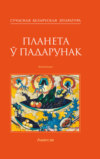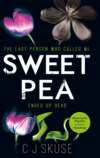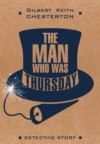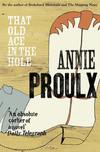Kitabı oku: «Barkskins», sayfa 11
21
shifting ground
Again Duquet changed, reinventing himself. In Boston, Duquet et Fils became Duke & Sons and he was Charles Duke. Still he kept his enterprise and some holdings in New France. He sat with Dred-Peacock in the taproom of the Pine Dog, a pleasant tavern with a sign showing an eponymous carved mastiff, now their favored meeting place as the Sign of the Red Bottle had burned in a conflagration that took half the wharves and several ships.
“Do you know aught of that fellow McBogle?” asked Duke, breaking the crust edge from his meat pasty with heavy fingers.
Dred-Peacock, bewigged and togged out, regarded his steaming coffee. “I have not made his acquaintance, but I hear much deleterious talk concerning his ways. Maine is full to the scuppers with woodland entrepreneurs, sawmills, surveyors, armies of tree choppers, potash and turpentine distillers and settlers, every man assaulting the free-to-all timberlands.”
“They think as I do,” said Duke, “so I cannot fault them. But although they love guns beyond telling, and protect themselves, the woods are dangerous with enemies, not only war foes, but the Crown Surveyor’s men. Yet they are only men.”
“The settlers are hard men, right enough, but there are others even harder, mostly in New Hampshire. I mean those men of Scots lineage lately removed from Ulster in Ireland.”
“Surely they are as other mortal men?”
“No. They are different. They are damned strange, cruel men, clannish and proud to a fault, thirsty for vengeance over imagined slights, hard-drinking and inhumanly tough. The whoresons prefer to sleep outside in storms rather than in the comfort of a house. They know the country as the poxy Indians know it and to live free is their banner. The buggers are impervious to cold and heat and they bear pain as the Indians do, stoically and silently, even with relish. The ridges and watercourses are their highways, the forest their shelter. They choose to live in the most remote places. And they are bloody damned key fighters in the escalating antipathy between the French and the English.” He paused and took up his coffee cup, stared into Duke’s eyes.
“Dud McBogle, his brothers and his sons are among these men.”
Duke threw back his head and laughed. “Well, I have heard bugbear stories aplenty and I would class McBogle tales among them. No doubt he eats children as sweetmeats and wears a red fur cloak bespangled with their bones. What do you say when I tell you I consider taking this man on as a partner?”
For once Dred-Peacock had nothing to say.
The ongoing war and marauding Indians forced Maine’s settlements to cluster along the tidewater margins; among them were several small shipyards. But Charles Duke discovered Penobscot Bay, where the great river discharged into the Atlantic and where he built a large house. He thought himself the first white man here, despising a few French-speaking métis, fruit of the fornicating priests who had lived earlier among the Indians. The land around the bay, called Norumbega by an unknown explorer, was fancied by credulous souls to be the site of a fabulous city crusted with gold and gems, as Kinkenadon or L’Isle Imaginaire. And here mustachioed Henry Hudson had cut the first mast pine in the New World. For that reason alone he liked the place.
Duke’s log house was more like a fort than a dwelling. Half the ground floor was given over to his business room, with its enormous table fashioned from a single slab of pine four feet in width. And it was time to bring his sons, now young men, to the New World and set them to work, although little Outger was still too young to leave his mother.
His Amsterdam sons, Jan and Nicolaus Duke, were fluent in Dutch, French and English with smatterings of German, Frisian and Portuguese. Jan was especially good with numbers and understood the finer points of bookkeeping. He was as forward-looking as a raftsman in a rocky river. Nicolaus, of imposing build, was physically strong and had a ruthless streak that Duke thought would make him feared at the bargaining table. He and Bernard were something of mariners, as both had several times sailed to China on the ships of Piet Roos. Jan and Nicolaus would deal with merchants, contracts and shipping. The French son, Bernard, was on his way from the Baltic, where he had studied the technical details of manufacturing pitch and tar, and where he had picked up a little of the Swedish language and enough Danish to be useful. He would be in charge of naval store production. And he, Charles Duke, the father, would continue to establish contacts, buy up paper townships and arrange for woodsmen and sawmills on the important rivers, to oversee the growing empire. It was time to gather his sons to him. And yet he was not interested in them in any way except an eagerness to recognize proofs of their success. They were the sons he needed. He wrote to Cornelia in English.
Beste Deer Wif.
I hope this liter find you and the childer in good helth I wishd to rite three Dayes pass but found ye Inkwel soe dry no Words in it and by some unhapy chance ye Cup Bord destit of Supply A qart come yester and todaye I take Quil in Hande to rite it is Time my Sons whose Care and Educasun you have fosterd begin Busines Life here with me in Boston and Mane cost New Franc I will rite them eache & mak ye Arangemt firm. I am covincd they will sucede in all our Procedings with ye help of your deer Fater and Unkul They are as capable as I hev ever wish I regret when I am far from and destite of frend hear and hop join you three mos. time I prey that you wil not want for hapy Compnee entil I return.
Charles Duke, Penoscot Bay Cost of Mane
Martch 3. 1717
He lodged his sons in Boston, but they came to the Penobscot Bay house once a month to meet in the business room, to spread out their papers and books on the great pine table.
He had not been wrong. Already, within a few months, the sons began to put forth their impressions and ideas. Jan, with his long bony face and hazel eyes slitted as though squinting into the future, was perhaps the most long-seeing, but they spoke among themselves before presenting him with new ideas.
“Father,” said Jan. “We have noticed that more and more English and Scots shipwrights are settling along the New England coast. We think it would be a sensible move to get a foothold in the shipbuilding industry. It would reduce the necessity of transporting lumber, masts, bowsprits and yards to English or European ports. It is an opportunity.”
“Yes,” said Duke. “I have often felt it would be good to move into shipbuilding, often and often, but I hesitated. You reassure me.”
“Also,” said Bernard, who had confounded them all when he arrived from the Baltic countries with a great horsy wife, Birgit, “pitch and tar. We have pitch pine here, of course, but the superior trees are in the Carolinas. And slaves. I would suggest that we purchase and operate a pitch pine plantation in Carolina.”
“It shall be done,” said the gratified father.
22
disappearance
In Boston one day Dred-Peacock came to him at the Duke warehouse, a cavernous building near the docks, redolent of pine, oak, furs and roots.
“I thought you might wish to know that the man you mentioned some time ago has been asking many people about you. How many sawmills you own, how disgustingly large your fortune may be, what ships you have, what tracts of timber and townships you possess. He himself operates five or six or more sawmills on the Penobscot tributaries and in New Hampshire. He begins to look like a serious rival.”
“Who do you mean? Elisha Cooke?” said Duke.
“His damned hard man, McBogle.”
“Indeed,” said Duke. “I hear this sometimes. He asks questions but we never see him. What is your own perception of this situation?”
“I think as you do, that he should be absorbed. He has the reputation of a dangerous man. I doubt we could buy him out but a partnership may be attractive. He has friendly relations not only with Elisha Cooke and the Wentworths, but with many judges and businessmen here and in New Hampshire. Yet he does not have our contacts across the Atlantic.” It was Dred-Peacock who had the invaluable English and European contacts.
“We must talk with him and see what might be arranged. Where do we find him?”
“That may be difficult. He has what they call a ‘thunderstorm sawmill’—because the only time it runs properly is when the water is high with rain—on the Moosegut and a house nearby. He keeps very much to himself in this remote place. If we go to him we must bring a few men with us for I hear he has a band of ruffians at his beck. I could accompany you a week today. But no sooner.”
“Bien,” said Duke. “Good enough.”
Then, within the hour, Forgeron, who had led a crew of woodsmen to cut one of Duke’s pine-heavy townships, arrived in Boston. His lean face was blotched with a red rash. He hesitated, as though he wished not to speak his news. When he did speak he threw his words down like playing cards.
“We found the best trees taken. The stumps still oozed sap.”
“Who?” said Duke.
“Ne sais pas—don’t know. But there is talk that the man McBogle last week shipped two great loads of masts to Spain. He will have made a fat profit. He is known for tree piracy.”
“I plan to find this man in a week’s time and see what can be arranged. We will work with him.”
“He is not known for compliance.”
“Nor am I. Dred-Peacock will accompany us on the Monday. You must come as well.” Something had to be done about McBogle and they would do it. “It is necessary we go in a body as we do not know the strength of McBogle’s men.” But over the last year Duke’s eyesight had begun to deteriorate, dimness alternating with flashing light and tiny particles gliding through his field of vision like birds in the sky. He said nothing to Forgeron of this, only “what is wrong with your face that it shows so rough and crimson?” Forgeron shrugged.
The plan was ill-fated. Two days later a packet entered Boston harbor with great sacks of mail. Among Dred-Peacock’s mountain of letters was one informing him that his older brother and nephew had both perished in fire, and that he, Dred-Peacock, had succeeded to the title, the great house (now with a somewhat charred east wing) and the family’s two-thousand-acre estate, Dred Yew in Wiltshire. In seconds his talk of colonial liberty and rights evaporated, his self-definition as a man dedicated to New England self-rule shriveled.
“I must go,” he said to Duke. “It is my responsibility to my family and to the estate—and the great yew tree now in my care. I cannot evade the title nor the responsibility. I leave at once.” In his voice Duke detected a long-suppressed tone of haughtiness. “I will write to you when I have settled my affairs. I believe we can continue our business ventures.”
“Yes,” said Duke. “I quite see it.” Scratch some New England colonists, he thought, and you find Englishmen, as the bark of a tree hides inner rot. “But I cannot believe your chatter about a ‘yew tree.’ What man would leave a fair and rich land for the sake of a haughty tree?”
“It is an immortal tree, centuries old. It has been on my family estate since a time before Christ, since the time when men worshiped yews and oaks. It is nothing you can understand.” What could Duke say to that? Nothing. What mattered was the continuance of their business dealings. And as if that were not enough, word came that Forgeron was ill with a fiery skin inflammation and the quinsy, a putrid sore throat that forced him into his bed. Duke said he would not delay. He would seek out McBogle alone.
He ordered a canteen of strong black coffee. He would ration it out, drink it cold, eschewing fires as the forest was sown with skulking Indians and French. A schooner took him to the mouth of the Penobscot and he began his solitary journey.
It was spring, rafts of rotten ice riding the current in company with thousands of logs. Crowds of woodsmen stood on the banks snagging the logs slashed with their outfits’ marks of ownership. The work continued all night by the light of enormous bonfires, cat-footed men running out onto the heaving carpet of mixed logs to hook and prod their property to shore. Impossible to put a canoe into that maelstrom. He had ordered his own timber crews to hold back his logs until the river cleared of the floating forest. Now he set out afoot. And noticed two riverbank men turn away from the heaving river and cut obliquely into the forest. He smiled. Did they imagine they were not noticed?
Sometimes he was on dim Indian trails following landmarks almost always obscured by the jagged skyline of conifers, but more often making his way through logging slash and blowdowns. Although timber cutters had worked the area along the river, a mile or so inland was still terre sauvage, and like the ocean it breathed wild grandeur. Tree limbs arched over the silent earth like the dark roof of a tomb vault.
He took an entire day to cross an autumn burn, charred trunks of the smaller trees with their own black limbs tangled around their roots like dropped drawers, still-smoldering logs that could not be quenched. The biggest trees stood lightly scorched but unharmed. Winter snow had converted the ash to black muck. On steep slopes it was the ancient wind-felled monsters that caused the greatest hindrance. Some, whose branches interlinked with those of their neighbors, had pulled them to the ground. Often he had to crawl beneath these barriers. It was not possible to get around them as the way was blocked by other recumbents. He could not count all the streams and bogs. The treetops dazzled, the flashing wings of hundreds of thousands of northward migrating birds beat above him. He saw snowy owls drifting silent through the trees, for they had come into the Maine woods in great numbers that winter and with the turn of the season were retreating to the cold lands. His eyes wearied of broken, wind-bent cedar and glinting swamp water. All one afternoon he had the feeling he was being watched, and as twilight thickened he saw a grey owl flutter to a branch stub and grip him with its clenching eyes. Of all birds he most hated this wretch.
After six days he cut back toward the Penobscot following Moosegut brook; McBogle’s sawmill could not be very far distant. He listened for the sound of falls. He felt the mill through his feet before he saw it, the metal clank and rasp of the driveshaft gears and pitman arm sending a thumping rhythm into the ground. It was spring, he thought, and the entire forest would soon reverberate with the noise of multiple mills as water ran freely again. His eyes troubled him, tree branches and needles sparked. Abruptly there was the mill, a heavy log structure to take the weight of gang-saw machinery. And there was Dud McBogle standing above him in a razzle of flinching lights.
Recognition was instant. Dud McBogle was the ginger-whiskered timber thief who had long ago turned back and called something to the wounded boy. Duke felt a red cloud of danger envelop him. His blood instantly flowed back on itself. The teeth of the moving saws gnawed and glinted. He saw that he was fatally imperiled. Exitus in dubio est.
“Been expecting you,” said Dud McBogle in an easy tone. “I went back, you see. I went back and dug up the pit where you burned my boy.” The two riverbank men stepped out of the corner and stood beside him. What could not happen began to happen.
“Not yet!” blurted Duke. “I’m not done—”
But at the age of fifty-three with his fortune only half-secured he was done.
III
23
dogs and villains
He sat for an hour on a knotty and punishing pine bench before the governor’s secretary beckoned him in. As a young missionary Louis-Joseph Crème had first served in New France. Later he had been sent to Port Royal in Acadie, a true wilderness, and among the Mi’kmaq he began to keep a notebook of their rich vocabularies of geological structures, weather and season, plants, animals, mythological creatures, rivers and tides. He saw they were so tightly knitted into the natural world that their language could only reflect the union and that neither could be separated from the other. They seemed to believe they had grown from this place as trees grow from the soil, as new stones emerge aboveground in spring. He thought the central word for this tenet, weji-sqalia’timk, deserved an entire dictionary to itself.
Now, with receding hair and arthritic joints although he was only forty, he stood before the governor, shivering, for he felt a coming illness. Sleeping on the ground did not suit him. He was not of this place, he had not sprouted here and so to him the ground was hard.
The governor was a haughty snob, un bêcheur with a cleft chin and a bulge of throat fat. He gave off an air of having hung in a silk bag in the adjoining room until it was time for him to emerge and perform the duties of his position. His eyes focused on the wall, never meeting those of Père Crème.
“Surely I do not need to tell you that the English in Hudson Bay press down from the north, they press in from the sea, they squeeze Acadie, they press east from the Ohio valley. New France is awash in spies, scouts, Englishmen and rangers from New England. The coast fishery is ravaged by English and Boston vessels.”
The missionary thought that every sentence the man uttered had a subterranean meaning—if only he could grasp what it was. “Your Excellency, the Mi’kmaq are constantly called to fight for France although they have very few fighting men these days. They were once a vigorous tribe, as many as the hairs on ten men’s heads. Today they have but a few hundred warriors. As they die they lose their sensibilities, their knowledge falls away.” He hoped he, too, would not fall away. He felt quite dizzy.
“Their sensibilities! These people are masters of inventive cruelties. I mention to you the example of the young sailor captured from a fishing boat. The women, who are even more inhuman than the men, tortured him by fire and knife. They burned his feet with fiery brands, his legs, his privy parts. They cut him until he was pouring blood like an April freshet, then thrust his charred feet into an iron pot of boiling water. So speak not to me of their ‘sensibilities.’ It is your concern to care only for their souls. And to inculcate in them love and respect for le Roi notre prince—the King, our prince. And urge them to fight the English. That is your duty.” He spoke as one confident in his position of power.
Père Crème knew that temporal power had its limits, some of them very abrupt if one observed recent history. “I humbly try to do so at every chance,” he said, feeling his chills switch suddenly to feverish heat. “And in any case that sailor was an English, a Protestant.”
“That is beside the point. You seem to regard the Indians as special persons. They are no more than men, and not very reliable men at that. We are forced to use them as fighters when our territory, when the great fort we are now building at Louisbourg is menaced by the English. It will be the gateway to our North American possessions. You know how important Acadie is to New France. France must retake it. It is vital sea access.” Now he was locking his fingers together and stretching them out.
Père Crème forbore to mention that the fort could not protect the seaway; that was the responsibility of the French fleet. But he only said, “Your Excellency, the Indians do suffer. They do have feelings. They love their country, which we are taking, they love their children, whom we are corrupting with our goods and forceful ways. They say France regards them as of little value. And this has long been their land, where untold generations have lived undisturbed.”
“Indeed. You know, Père Crème, you seem to me to be lacking in zeal for the cause of France.”
“No, no. I only pity them. They have lost so much, so many.” Why could the man not grasp that the Mi’kmaq wished only to live their lives as they had for many generations, and that as every day passed that was less possible?
“And France has lost so many. You would do better to think of them rather than these libertine heathens who are dogs and villains. They are not Christians as you, a designated man of God, might have noticed.”
Père Crème, dismissed, tacked for the door, his feet at odds with each other and his neck wry. He prayed silently for the governor to become more observant, more kindly. Or better yet, to fall down in a fit and never rise. He immediately withdrew this cruel wish and requested forgiveness.
Several days later he addressed a letter to his sister Marguerite, one of hundreds of letters never sent, for he had no sister. It eased his mind to have an imaginary confidante, and he was able to work out his sometimes chaotic thoughts this way.
Dear Sister Marguerite.
For a minute he imagined her, slender and pale, sitting in a green chair and opening his letter with a silver knife. She might wear a gold locket with a wisp of her brother’s hair in it—or a miniature of their mother, whom Père Crème could scarcely conjure from his faded memories.
They do not have orderly Lives as we do. Their time is fitted to the abundance crests of Animals, Fruits and Fish—that is to say, to the Seasons of the Hunt and ripening Berries. One of the most curious of their attributes is their manner of regarding Trees, Plants, all manner of Fish, the Moose and the Bear and others as their Equals. Many of their tales tell of Women who marry Otters or Birds, or Men who change into Bears until it pleases them to become Men again. In the forest they speak to Toads and Beetles as acquaintances. Sometimes I feel it is they who are teaching me.
He stopped for a long time before continuing with the feeling that he was getting it wrong.
To them Trees are Persons. In vain I tell them that Trees are for the uses of Men to build Houses and Ships. In vain I tell them to give over so much hunting and make Gardens, grow Grains and Food Stuffs, to put order in their Days. They will none of it. Therefore many French people call them lazy because they do not till the Earth.
I have heard a Story that in some earlier time …
















